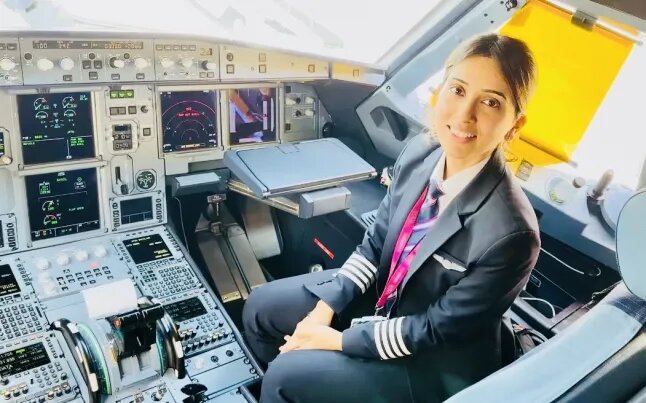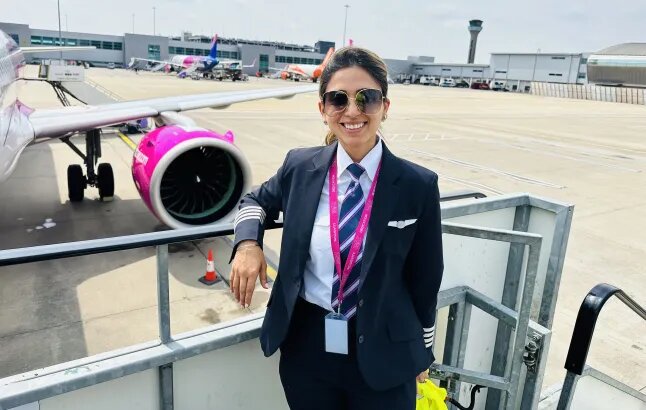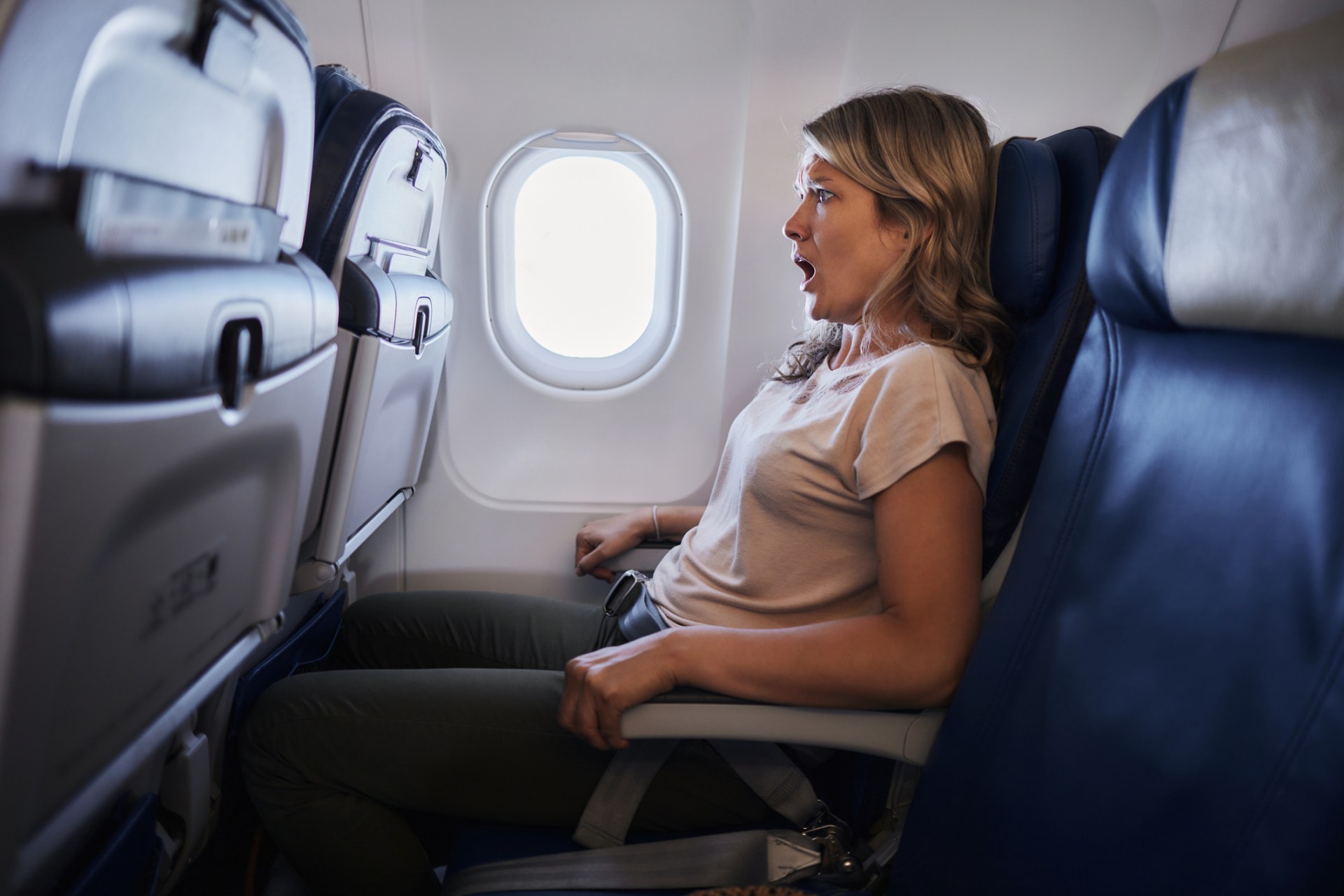
on a daily basis, Shibani Kaur Gupta loves her job as a pilot.
stereotypes and really make a difference.’
And not only does she enjoy helping change negative views regarding women in aviation, she also likes to be able to help and reassure those who are nervous about getting on a
licence when she was just 17 years old, has spoken to a lot of passengers over the years and has some crucial advice for anyone who might be anxious about

but also if you get the opportunity, speak to the pilot. It’s not always possible as they’ll likely be busy with work, but it’s happened to me a few times in previous jobs where I got to speak to a nervous flyer and it really calmed them down, because hearing it from the horse’s mouth really makes a difference.
‘I got to tell them that I know what I’m doing and I’m not going to jeopardise the safety of the flight, because it’s my life at risk as well. So I think talking about your nervousness is a good trick.’
before or during a flight as a way to try and clam your nerves.
‘Resting well and not being intoxicated will help, and it also helps the crew avoid any medical emergencies during the flight,’ she says.
‘It’s also a good idea not to smoke before a flight – it’s a proven fact that if you’re a smoker it makes it more difficult to breathe on a plane because you’re at a much higher altitude, so avoid that.’
Shibani adds: ‘Drink a lot of water, because it’s very dry in the cabin, and try to distract yourself by reading a book.’

But this isn’t the only behind-the-scenes tidbit, Shibani revealed about her job. She also revealed how the change in air pressure can have a major impact on pilots’ bodies, and they have to ensure they are in very good physical shape as a result.
‘Pressurization is not normal, we as human beings are not naturally meant to be going through these pressurization changes twice a day, it’s not something your body enjoys, so it’s very, very important for us to be super fit and do things outside of work, specifically to concentrate on our health and physical wellbeing,’ Shibani explains.
‘We have to have regular medical check-ups as well. So once a year we get a medical renewal, which sort of renews our licence and they check everything in our body and make sure we are fit to fly. There are lots of tests involved.
‘The job is just also quite physically tiring, after five days of work the next day is just a recovery day.’
But none of this is the most difficult part of the job, that would be the unusual hours they have to work.
‘There is no schedule basically, you just have to wake up at really, really odd hours and you don’t get a lot of family time. On my work days, I don’t really get to see my husband very much,’ she admits.
‘The hardest parts are definitely managing your sleep, and work-life balance, which can be challenging. You really need to have a supportive partner for that, otherwise it’s impossible, otherwise you’re just going to be alone.’
Shibani is also very aware that things will become even more difficult when she and her husband decide to have children.
‘I would love to have a child, as and when it happens, I am in no rush, but I know that’s going to be quite challenging for this profession. I know a lot of female pilots who have kids, and it’s fine, we will manage, but it is challenging. If I don’t get to see my husband, I’m definitely not going to get to see my child. But I think it’s something we’d all get used to, the child would get used to it, or at least that’s what I’ve heard,’ she added.
Do you have a story to share?
.

